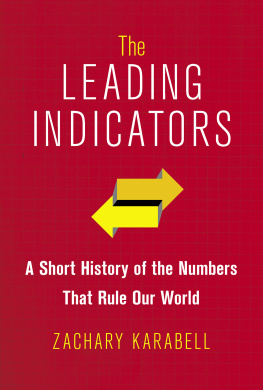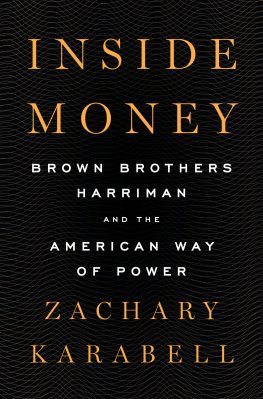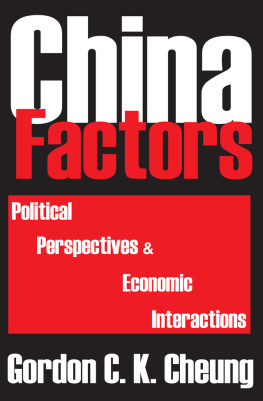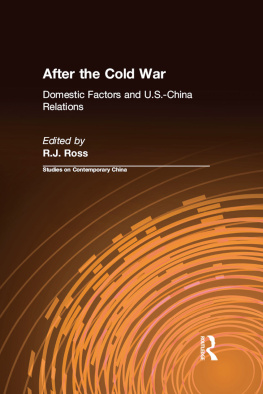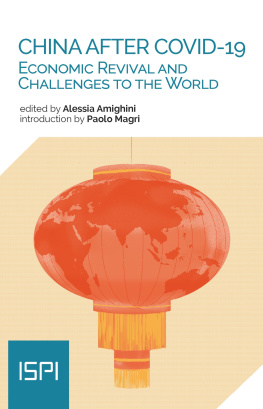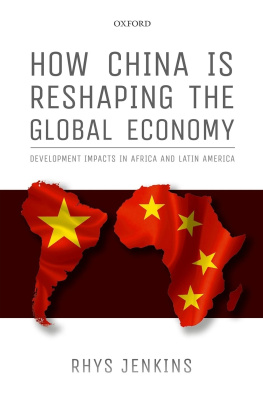
ALSO BY ZACHARY KARABELL
Peace Be Upon You: The Story of Muslim, Christian, and Jewish Coexistence
Chester Alan Arthur
Parting the Desert: The Creation of the Suez Canal
Kennedy, Johnson, and the Quest for Justice: The Civil Rights Tapes (with Jonathan Rosenberg)
The Generation of Trust: Public Confidence in the U.S. Military since Vietnam (with David King)
A Visionary Nation: Four Centuries of American Dreams and What Lies Ahead
The Last Campaign: How Harry Truman Won the 1948 Election
Architects of Intervention: The United States, the Third World, and the Cold War
Whats College For? The Struggle to Define American Higher Education
Coda
THE WAR WAS OVER, and the enemy had been vanquished. It had taken six years and millions of lives. It had required everything, but they never surrendered. In 1945, Nazi Germany could no longer menace the skies and threaten an invasion, and the emperor of Japan had surrendered to the Americans. The imperial outposts of Hong Kong and Singapore were once again in the fold, and the empire was intact. Great Britain had won, but the country was broke.
In order to pay for the war, Britain had spent nearly 25 percent of its national income and taken on nearly $15 billion in debt, which at the time was an extraordinary amount of money. Having managed to fund World War I with receipts from its global empire, Britain had remained a creditor nation throughout the Great Depression. The Second World War changed that forever. Global exports were severely disrupted during the war and that led to a sharp decline in income. In order to pay for the armies and air force and fleet, Britain had relied on its closest ally, which just happened to be one of the few solvent countries in the world. The United States provided not just money but materials and men, and together the two allies were able to triumph.
With its finances in tatters and infrastructure in cities such as London and Liverpool severely damaged by bombings, Britain needed cash, and it turned to the United States. It asked for an interest-free loan of $5 billion, repayable over a 50-year period. The British were certain that their friend and ally would say yes without so much as a question. Astonishingly, the Americans said no. The British responded, in so many words, that unless they received a loan, they would be unable to honor their debts and unable to import sufficient food to feed the populace. The British government was nearly insolvent, and the worlds one remaining empire was in danger of default.
After heated negotiations, the United States agreed to extend Britain a loan of $3.7 billion at 2 percent interest. The fact that the British had to beg for the money and then be charged interest was galling enough. The conditions were worse. Under the terms of the agreement, the British had to terminate any tariffs and duties that privileged its colonies. It had to abide by the outlines of the Bretton Woods Agreement of 1944, which made the dollar the reference point for global exchange rates rather than the English pound sterling, and it had to allow the pound to be freely convertible against the dollar. What these conditions meant in practice was that the entire edifice of the British Empire was about to be dismantled.
That empire had relied on two things: the British navy and a closed system of trade and commerce. Britain could export to India and know that it had a market because it did not allow India to import freely from other parts of the world. By demanding that Britain open its colonies to American trade, and by forcing the British to allow exchange between dollars and pounds, the United States effectively forced Britain to end its empire. That didnt happen immediately, but it did happen swiftly. India became independent in 1947, and decolonization of the rest of the empire followed over the next decade. One British official, remarking on the dramatic change in the balance between Britain and the United States, said bluntly, It was impossible not to be conscious that we were playing second fiddle.
That was precisely what the United States government desired. While the relationship between the wartime prime minister, Winston Churchill, and the wartime president, Franklin Roosevelt, could not have been warmer, powerful advocates in the U.S. government both during and after the war wanted to see an end to imperialism and an end to the British Empire. Some of that drive was based on principle and some on power, but as much affection as there was between the countries, the United States wanted its own place on a world stage that had been dominated by Britain. With its position strengthened by the war and the British severely weakened, the United States was able to force the British to take a backseat.
By 2030 and perhaps sooner, China will have a larger economy than the United States, though it will probably be poorer on a per-person basis. Trying to guess whether the United States is a creditor or debtor more than three decades in the future would be foolish, but it is certainly possible that well before then, the United States will find that its need for foreign capital is so great that it will be forced to abide by conditions that it will find as onerous and humiliating as the British did in 1946. Just as Britain maintained an imperial system that slowly led to stagnant growth, the United States could adhere to a particular form of market capitalism that will lead to diminishing returnsand perhaps already has. That could place China in the enviable position of being able to dictate conditions, and those conditions are likely to suit Chinas sense of how the world should be rather than Americas.
It does not have to be an either-or. China may find that its need of the United States in particular and of the world in general, for raw materials, for markets, and for things not yet known, will trump its interests as a nation-state to acquire more power at the expense of others. Even if by some unexpected twist China manages to evolve over the next three decades without losing more of its autonomy and sovereignty in a world of open markets, that doesnt mean that it will then become an enemy or that the relationship with the United States will become antagonistic. And slipping behind China will not necessarily spell the end of the United States as a viable, energetic society. In truth, as lost as Britain was for several decades after 1945, it managed to remain a prosperous country with considerable standing in the world, even if it was no longer the most powerful nation. There are worse fates than to be Britain after 1945.
But there are better fates as well. The United States still has vast resources of capital and culture, and China still has a ways to go before it has the wealth and confidence to match that. The two together are stronger than either is alone, and it will take more than the events of 2008 and 2009 to end the long march of prosperity that the United States has helped generate.
It is also true that the relationship between China and America may encounter unexpected wrinkles. If the past years have taught anything, its to expect the unexpected. The sudden collapse of the Soviet Union came as a profound shock, as did the events of 9/11, to name just two of the black swans that took the world by surprise. While the emergence of China seems relatively certain now, the future may hold some dramatic twists. And while the fusion of the two economies is central to grasping the world today, it may of course wane or succumb to pressures in the years ahead. Other factors, whether environmental or geopolitical, may also alter the trajectory in ways that are impossible to predict but should at least be considered.
Next page

